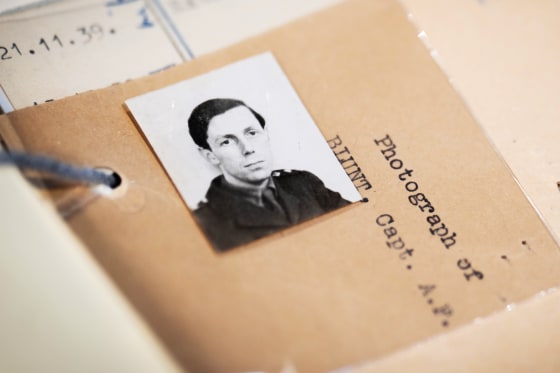
LondonAccording to recently declassified records, Queen Elizabeth II was not formally notified for almost ten years about the betrayal of a top palace courtier.
As the royal family’s top art curator, Anthony Blunt supervised the paintings in the royal collection, surveyed the queen’s photographs, and occasionally showed off her personal treasures to the general public. Although he had led a double life as a Soviet spy, he won the queen’s affection to the extent that he was knighted.
The documents provide fresh insight into the Cold War scandal at the core of the British establishment. They are part of a cache of spy agency MI5 archives made public by Britain’s National Archives on Tuesday. Historians and popular culture have long been enthralled with the saga, which has been represented in everything from spy thrillers to Netflix’s “The Crown.”
According to the records, Blunt admitted in 1964 that he had spied for the Soviet Union during World War II as a member of the infamous Cambridge Five spy ring. The queen would not learn the complete tale until 1973, at which point she responded coolly and unsurprised. In 1979, former British Prime Minister Margaret Thatcher revealed his true identity to the public during a speech in Parliament.
Only a few top officials were aware of Blunt’s identity because of the security services’ strict secrecy over his high profile, although the secret might have been known anyhow. Martin Charteris, the queen’s private secretary, was only informed that MI5 planned to question Blount because of his close relationship with fellow agent Guy Burgess, who escaped to the Soviet Union.
Historian Chris Smith, who wrote a history of Cambridge Five spy John Cairncross, told NBC News that the events probably reveal more about the state’s failure to bring charges against Blunt than a deliberate attempt by MI5 to conceal the late monarch.
According to Smith, telling Her Majesty—or anybody else, for that matter—would have been considered embarrassing for Her Majesty and possibly slanderous.
Smith stated that the royal family was extremely embarrassed by Blunt’s transformation into the quintessential establishment figure by the time it was discovered that he was a spy.
Therefore, keeping the material secret would have also protected Her Majesty from embarrassment by enabling the palace to honestly deny that she was aware of Blunt’s espionage activities.
